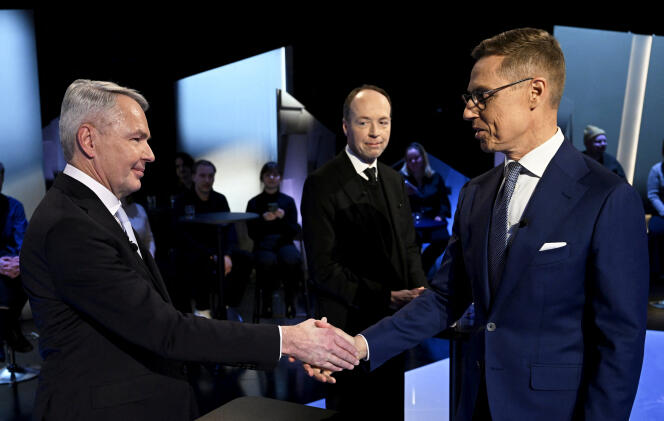


The last time Finnish President Sauli Niinistö was in touch with his Russian counterpart Vladimir Putin was on May 14, 2022. Niinistö – who is the currently-serving European leader to have most often spoken with the Russian president – had called to officially inform Putin that his country had decided to join the North Atlantic Treaty Organization (NATO). Since then, the two heads of state have not said a word to each other, while relations between their countries – which share a 1,340 km border – have steadily deteriorated.
Against this backdrop, it's hardly surprising that security issues, NATO and Russia have been the dominant themes of the Finnish election campaign, in the lead-up to the first round of the presidential election on Sunday, January 28. Especially as the Finnish president is not only the head of the country's armed forces, but also responsible for its foreign policy, which he must conduct in collaboration with the country's government.
In recent months, tensions between Moscow and Helsinki have risen further, following an influx of several hundred migrants at the Finnish border. Condemning this as an attempt at destabilization, the Finnish government – led by conservative Petteri Orpo – decided to close all of the border crossings between the two countries on November 30. They are to remain closed until at least February 11.
On December 17, Russian President Vladimir Putin gave an interview on Russia 1, in which he accused the West of having "dragged Finland into NATO" and warned: "There were no problems there. Now there will be, because we will create the Leningrad Military District and concentrate a certain amount of military units there."
Faced with these threats from the Kremlin, Niinistö, who has been in office since 2012, has become a guiding figure for many Finns, with his calm reactions and his proven determination to show that his country will not be intimidated by its huge neighbor. "If he had been allowed to stand for re-election, there's no doubt he would have won again," said Åsa von Schoultz, professor of political science at the University of Helsinki. However, after two terms in office, Niinistö has to step down.
Nine candidates are in the running to succeed him, representing almost all of Finland's political parties. According to political scientist Göran Djupsund, the gravity of the situation is reflected in the choices that have been made by the various political formations: "Never before have we had a line-up that includes so many people with expertise in foreign and security policy matters," he noted. Another unusual feature is that "the differences of opinion between the candidates on these issues are microscopic."
You have 45% of this article left to read. The rest is for subscribers only.
